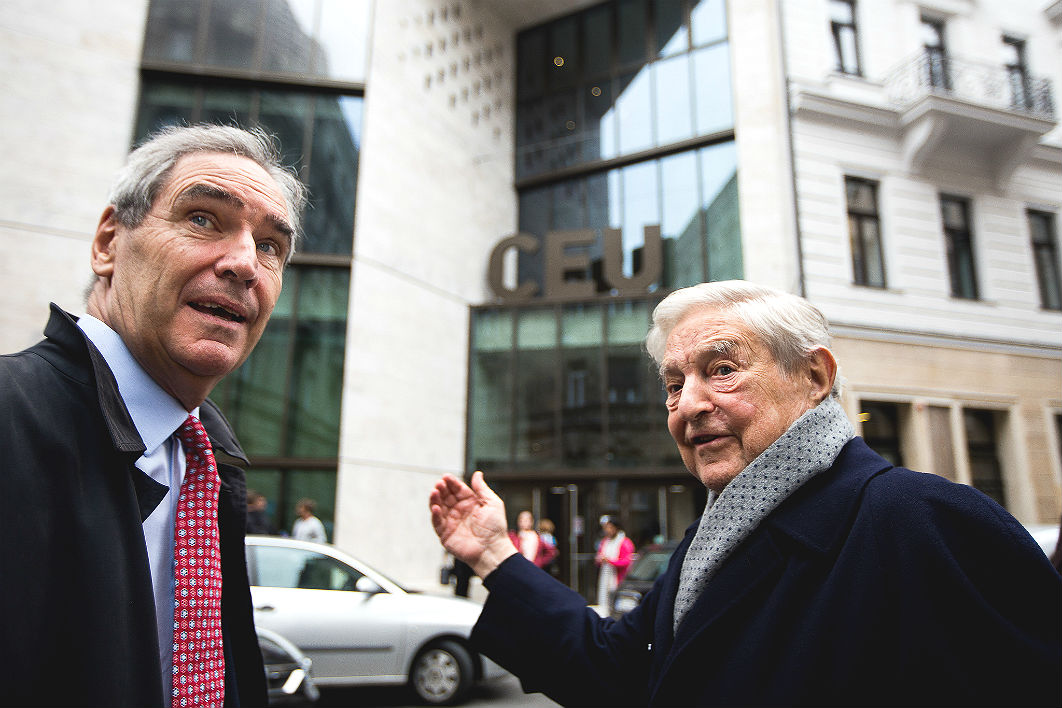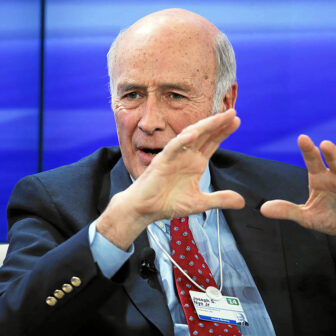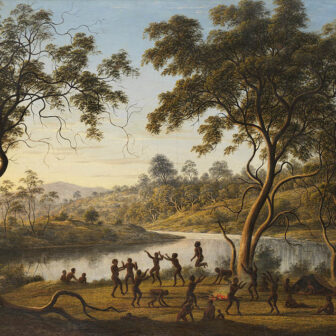The Ordinary Virtues: Moral Order in a Divided World
By Michael Ignatieff | Harvard University Press | $59.99 | 236 pages
Multiculturalism can be hard work for ordinary citizens. Members of Melbourne’s Sudanese community have had to resort to social media to show that they are hardworking, family-oriented Australians and not potential criminals. Muslim organisations are expected to take special responsibility for keeping Australia safe from terrorism. And citizens who have lived comfortably with their own kind for many years are now confronted with the problem of how they should relate to newcomers with different religions, social backgrounds, dress, customs and manners.
Which moral assumptions and practices must people share if they are to live together peacefully in the countries and cities that the globalising world is creating? What makes social order in these cosmopolitan environments break down, and what can be done to restore it? These are the difficult questions Michael Ignatieff poses in The Ordinary Virtues.
Ignatieff, now the rector and president of the Central European University in Budapest, has had a distinguished career as an author, academic and Canadian politician. His book is the result of a project sponsored by the Carnegie Council for Ethics in International Affairs to discover the ethics ordinary people use when they confront conflict, corruption and tragedy, and the challenge of living together in a diverse society.
Ordinary people, as Ignatieff defines them, are those who are not moral philosophers or human rights activists. They include people who have benefited from globalisation but also the less privileged. Ignatieff and his team visited suburbs of New York and Los Angeles where people are confronted in their daily lives with the problem of getting along with others of different races, religions and ethnic backgrounds. They went to the favelas of Rio de Janeiro and to Bosnian cities devastated by war and ethnic cleansing. They talked to people who were trying to rebuild their lives in the aftermath of the Fukushima disaster, to black South Africans frustrated by the corruption of their government and persisting inequality and to people in Myanmar about the crisis in Rakhine state.
Is there a universal morality evident in the way that people respond to the ethical issues that affect their lives? He found that “human rights talk,” the lingua franca of Western governments and cosmopolitan elites, was not to be heard in the favelas of Rio de Janeiro, among the people displaced from Fukushima or even among the poor in New York and Los Angeles. Nor did these people appeal to a cosmopolitan morality of the kind advocated by some philosophers. Their ethics is not expressed in universalising propositions: it is a practice learned by example and experience. It is situational, responding to the people they encounter and the complexity of their circumstances. It is biased in favour of their family, friends, neighbourhood and community. Not for them a morality that gives them duties to all of humankind. But it is also a morality capable of finding common ground with strangers and outsiders. The people Ignatieff encountered practised what he calls “ordinary virtues”: tolerance, trust, honesty, respect, resilience and hope.
In Jackson Heights, part of the New York borough of Queens that is home to African Americans, Jews, Hondurans, Dominicans, Nepalese, Koreans and many other groups, tolerance is a workaday social practice. Almost half were born in another country and most families speak a language other than English, yet people have found a way to live together, maintaining their own communities and separate private lives but sharing public space and institutions.
In areas of Los Angeles that were once riven by race riots, trust between people of different ethnic and racial groups can flourish because of reforms to the police department and the work of community groups and political alliances. In the villages affected by the Fukushima disaster in Japan, Ignatieff finds resilience and hope among survivors who are not only rebuilding their own lives but also helping others to do so.
The ordinary virtues cannot thrive if political conditions don’t favour them. Ignatieff stresses the fragility of the unspoken consensus that makes it possible for people to get along. The success of cultural diversity in global cities depends, he says, on whether they deliver “every day, a certain rough justice: jobs that don’t discriminate, employers who pay what they owe, landlords who keep their places up, police who don’t pick on the undocumented, courts who rule fairly.” Success also depends on all people having an opportunity to better their position and on politicians who avoid stirring up animosity for the sake of political gain.
In some of the places Ignatieff’s team visited, conflict, bad government and crimes of the past threaten the survival or even the possibility of ordinary virtues. In Bosnia, where the divisions caused by war and genocide overshadow daily life, he concludes that hope for the revival of ordinary virtues depends on a slow process of reconciliation that could take generations. In the Rio de Janeiro favela of Santa Marta he found the ordinary virtues prospering as a result of government programs to improve policing and to drive out drug gangs. But this improvement hinges on continued expenditure and an honest police force, and is put at risk by the corruption that infects Brazilian politics.
In Myanmar, the big question for citizens is not how people should treat each other but who counts as belonging in the country. A politics that builds national unity by treating marginal people such as the Rohingya as dangerous interlopers is not conducive to the practice of ordinary virtues. In South Africa, where the promise of liberation and reconciliation has been replaced by discontent among young black people about their prospects, the peaceful settlement that ended apartheid is coming under question. Persistent poverty is another challenge to the practice of the ordinary virtues.
All of this is reasonable, indeed rather obvious. A more thorough investigation would dig deeper into the causes of hatred and conflict and the conditions required for peaceful and cooperative co-existence. But Ignatieff’s aim is not to engage in sociological research. Nor does he present a philosophical exegesis on the virtues, or even a complete list of what they are. His main purpose is to defend three claims. The first is that global morality consists of ordinary virtues rather than the morality enshrined in the UN Declaration of Human Rights or defended by the non-government organisations that preach reconciliation and protest about violations of human rights. The second claim is that the practice of ordinary virtue works best in a society where people are able to maintain their separate communities — that living apart is what makes living together possible. The third claim is that liberal societies provide the best environment for ordinary virtues to flourish.
Ignatieff’s first claim is backed up by his conversations with ordinary people. He noted that all those he talked to, whatever their class or race, assumed that they had the right to be heard. They took themselves to be equal contributors to a moral discourse in which others, including outsiders, were participants. They had imbibed the idea of human equality that is basic to human rights. But the morality they actually operated with made no appeal to rights or any other moral doctrine.
This is not surprising, but it does not show that human rights are irrelevant to the lives of ordinary people. The morality that people use depends on context. The language of rights, as the philosopher Joel Feinberg points out, is what people use when they want others to know that they and their interests deserve respect. It is the uncompromising language people are likely to employ when they confront government officials or protest against oppression and exploitation.
This use of moral language is evident, in fact, when Ignatieff tells of the struggle of a woman from a favela to get proper compensation from the government that destroyed her home. She demanded that her rights as a citizen be recognised. But the language of rights is not so appropriate when people are working out how to cooperate with others, when they are negotiating an agreement, thinking about their family obligations or wondering whether they should trust someone.
Ignatieff thinks that the fact that the ethics of ordinary people centres on their own lives, their families and communities supports the Enlightenment philosopher David Hume’s view of morality. Hume argued that morality is driven by our emotions and that it is natural for people to focus their moral concern on their near and dear. We are not inclined to accept duties to others just because they are human. Ignatieff agrees. Virtue, he says, is local. This is why appeals to human rights don’t persuade most citizens that they ought to allow more asylum seekers into their country. Canada, he says, has had the most success in persuading citizens to accept refugees because its program appeals to the hospitality and generosity of Canadian families and depends on their willingness to sponsor individual refugees.
What this demonstrates is not the failure of a universalist ethics but the role that emotions like sympathy play in our moral life. Hume argues that our emotional responses to the plight of strangers can be the basis for an impartial view of justice. Indeed, the human rights movement was born of people’s horrified responses to Nazi genocide.
But Ignatieff is probably right to say that what humans share, above all, is not a consensus about moral principles but a desire for a moral order that allows them to think of their lives as meaningful. Yet a secure moral order and a meaningful life may require a global consensus about what should be done to solve common problems like climate change. There is a need for a universal morality.
Ignatieff’s doubts about human rights as a universal ethics also stem from his belief that human rights institutions often do more harm than good. He is critical of the agencies that tried in vain to reconcile the Bosnians and Serbs. “Why did they ever think it was their business?” he asks. Only time, generational change and the slow work of local civil society organisations have a chance of creating tolerance and trust in Bosnia. He is also critical of human rights organisations that condemn Aung San Suu Kyi without understanding the complexities of Myanmar politics. He is right, of course, to insist that organisations should take context into account. But when people are murdered or driven from their homes in large numbers how can external organisations refrain from condemnation?
The second conclusion Ignatieff draws from his exploration of ordinary virtues is that the “moral operating system” of ordinary people works best when they are able to maintain their separate communities. This follows from the central position that family and community plays in their lives. There are, however, reasons for thinking that separation can have bad effects. Feminists point out that women in traditional ethnic communities can be restricted and coerced in ways that are contrary to basic liberal values. Separation is also not a good thing when it takes the form of racial segregation. The separation of black and white communities in the United States is an unfortunate legacy of a history that perpetuates racism and disadvantage. The separate lives and communities of black and white South Africans are a sign that the bad effects of apartheid have not been overcome.
Separation may also not be a good way of perpetuating the ordinary virtues in the long term. If the conditions that encourage ordinary virtues among diverse people are so fragile, then it might be better to encourage more integration. Sometimes Ignatieff seems to agree. He sees hope for the future in the way that young people in Bosnia cross the ethnic boundaries their elders constructed and in the unselfconscious embrace of a mixed-race couple in South Africa. His point, however, is that people have to be able to choose. Governments should not force them to integrate.
Ignatieff’s third conclusion is that a liberal society provides the best political framework for the exercise of the ordinary virtues. When the law applies equally to everyone, people can find a predictable order for their lives. They don’t have to barricade themselves in their ethnic or religious community for the sake of security. When they enjoy freedom and the rights of citizenship, they can live according to their idea of the good. All liberal societies have their faults; none is entirely free of corruption, political favouritism or powerful groups that pursue their own interests at the expense of the general good. But a liberal society, at least, has means of uncovering and dealing with problems and conflicts that prevent the ordinary virtues from flourishing.
Once again, it is difficult to disagree. But doubts about the capacity of liberalism or the will of liberals to deal with critical problems emerge from some of Ignatieff’s encounters. Some of these problems arise from the fact that the freedom of commerce and choice that liberal societies allow their citizens is not always conducive to the development and persistence of ordinary virtues. Ignatieff notes that the children of Queens are not educated in the same schools: white people send their children to private schools; black and ethnic children go to state schools. Schools segregated along class or racial lines don’t only perpetuate privilege, they also get in the way of what Ignatieff sometimes presents as hope for the future: everyday contacts between people of different groups, especially between the young.
The system of free trade championed by liberals is also something that can turn against the ordinary virtues. Ignatieff notes that peace in Los Angeles depends on the existence of jobs and industries that are threatened by competition from Asia. Any economic downturn, major technological change or loss of industry to competitors could lead to a return of racial conflict or animosity towards new immigrants.
In South Africa, he encounters young black citizens whose opportunities are hampered by the hold that white people retain over industry and ownership of most of the land. Some favour a reform that would return some of the land to black people. In response, Ignatieff raises the spectre of what happened in Zimbabwe when Mugabe drove white owners from their farms. These young people, he suggests, expect too much from liberation. Liberal freedom is not egalitarian, he says, and black South Africans ought to be content with the fact that most people are now better off. “Progress is progress,” he writes. “It’s just not redemption or reconciliation. But it is something.”
In my view this makes too light of the problem that persistent inequality poses for liberal societies. Inequality divides people, and when it is severe it is almost inevitably accompanied by poor prospects and greater vulnerability to crime for those on the bottom, and illegitimate uses of police and bureaucratic power. Severe inequality can undermine a common concern for the public good that is necessary for the health of liberal society.
It is not beyond the powers of a liberal society to do something about inequality. Nor is it contrary to liberal philosophy. One of the virtues of Ignatieff’s book is that it makes us think about the political prerequisites of a society that encourages the people of a multicultural or multiracial society to tolerate and trust each other, to live in peace with hope for the future.
Another virtue of the book is its ethical fieldwork. Ignatieff and his team left the halls of academe and the privileged enclave of midtown Manhattan to travel into the communities where most people live. Their encounters may sometimes have been superficial, their sample of opinions limited. Where they went was determined by where their organisation had contacts. But their findings are significant, above all, for revealing the importance to most people of living an ethical life. ●




